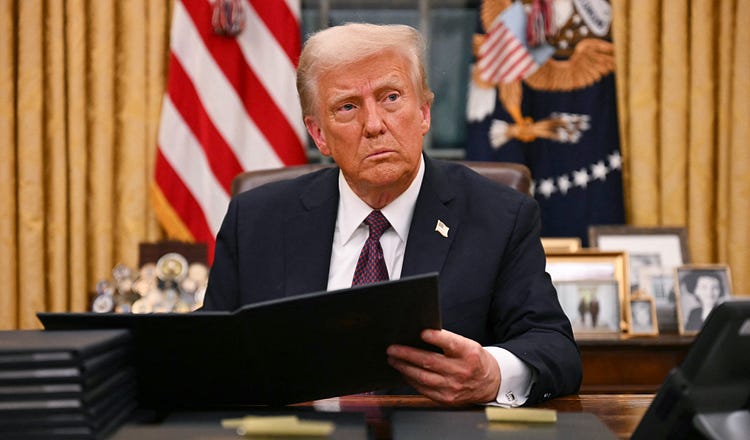
Donald Trump had a busy first day. There was the ceremony and the speech and the parade and the parties, parties, parties. And the signatures—so many signatures. The president signed executive orders onstage at his inaugural parade Monday afternoon. He signed them while taking questions from the press in the Oval Office Monday evening. He signed almost 50 official documents on Monday, nearly triple the 14 he signed in his first week in 2017. Joe Biden signed a paltry 15 on his first day in office four years ago.
Trump’s assorted executive orders and proclamations dealt with everything from flying flags at full-staff on Inauguration Day to hiring practices in the federal government to TikTok’s continued operation in the U.S. By far the two most controversial, though, were his mass pardon of almost everyone convicted of crimes during the Capitol riot on January 6, 2021 (read our editorial on that here), and an executive order to end birthright citizenship.
The latter claims that the 14th Amendment, which was ratified in 1868, does not automatically extend citizenship to anyone born in the United States. Rather, it denies automatic citizenship to those whose mothers were not in the United States legally and whose fathers are not U.S. citizens or lawful permanent residents, or whose mothers were in the country legally but temporarily and whose fathers are not Americans or lawful permanent residents. It bars federal agencies from recognizing the citizenship of people in these categories. The ACLU and 22 states have already sued to block it.
Could Trump really overturn such a long-standing legal norm with the stroke of a pen? And what exactly is the legal status of TikTok right now? In search of clarity to these questions and others on the Trump executive orders, I dropped a line to Yale Law School professor and constitutional expert Jed Rubenfeld. Here’s what he told me.

